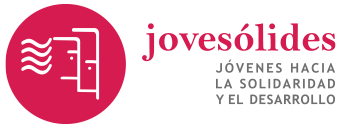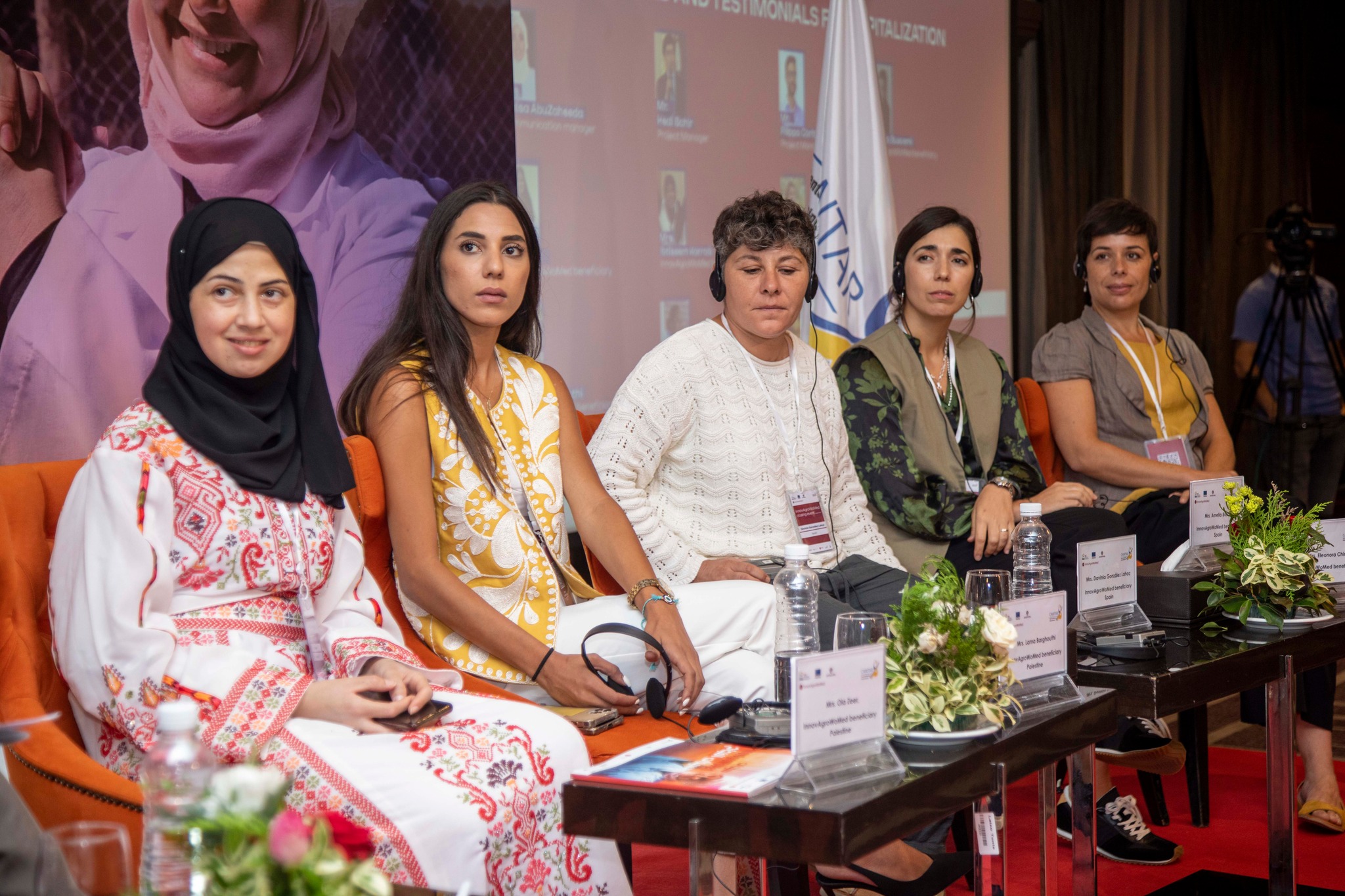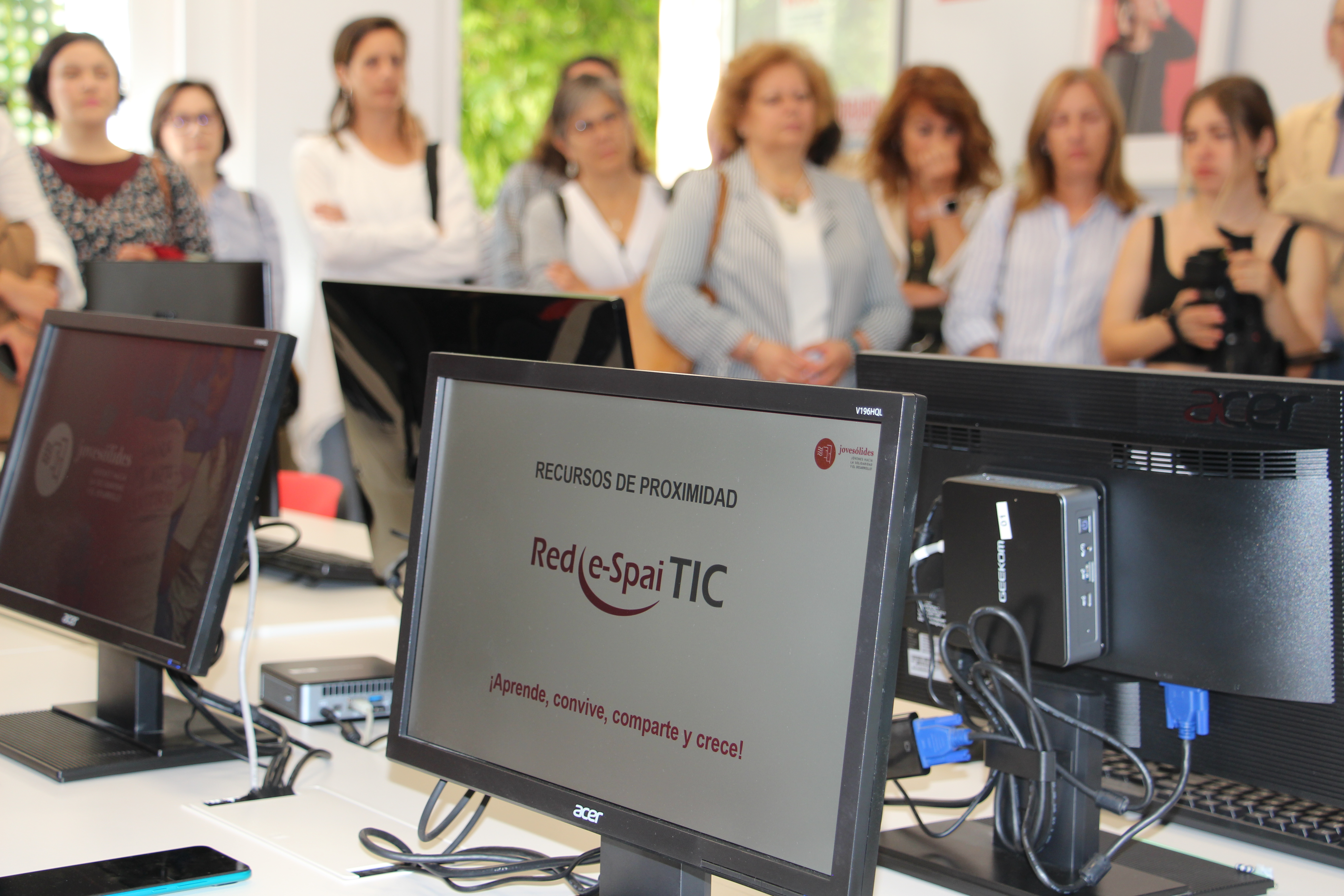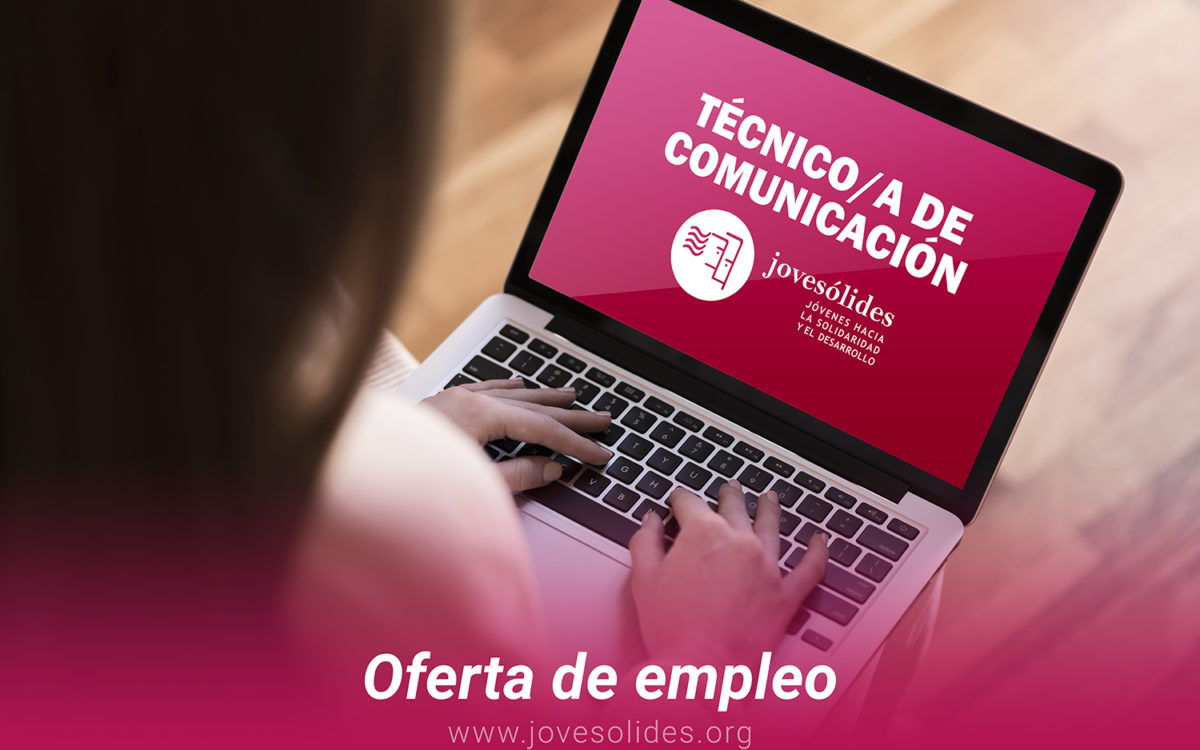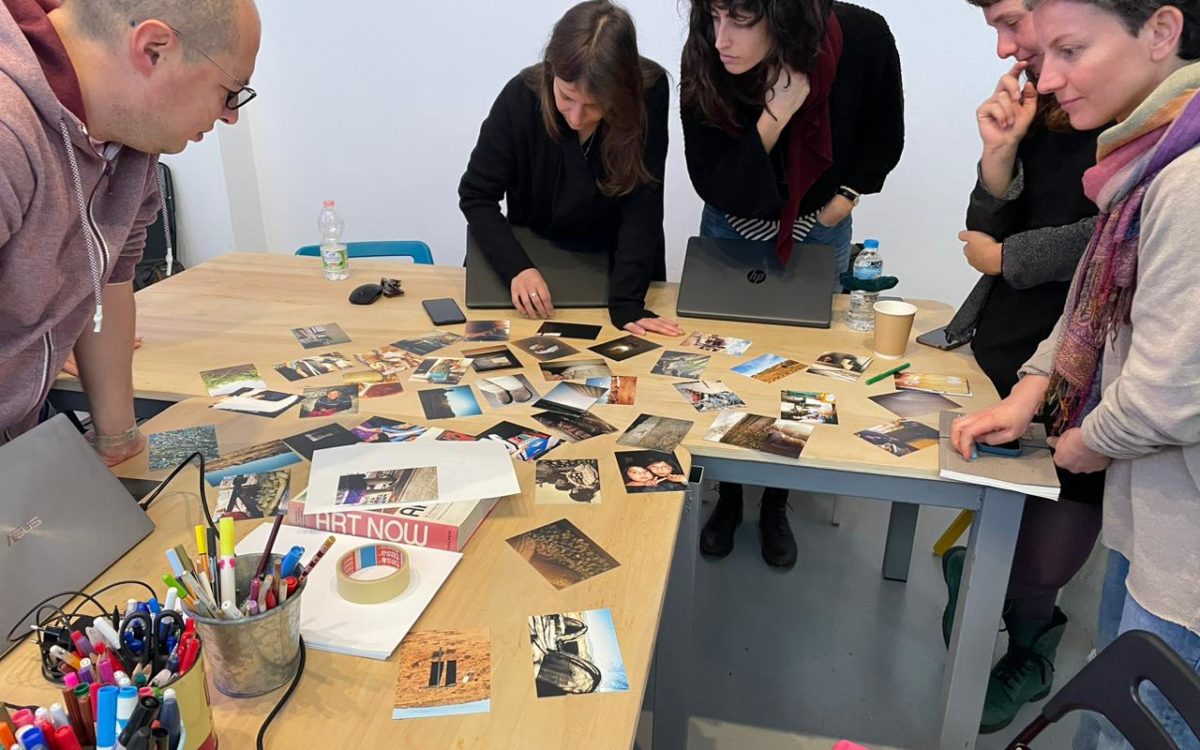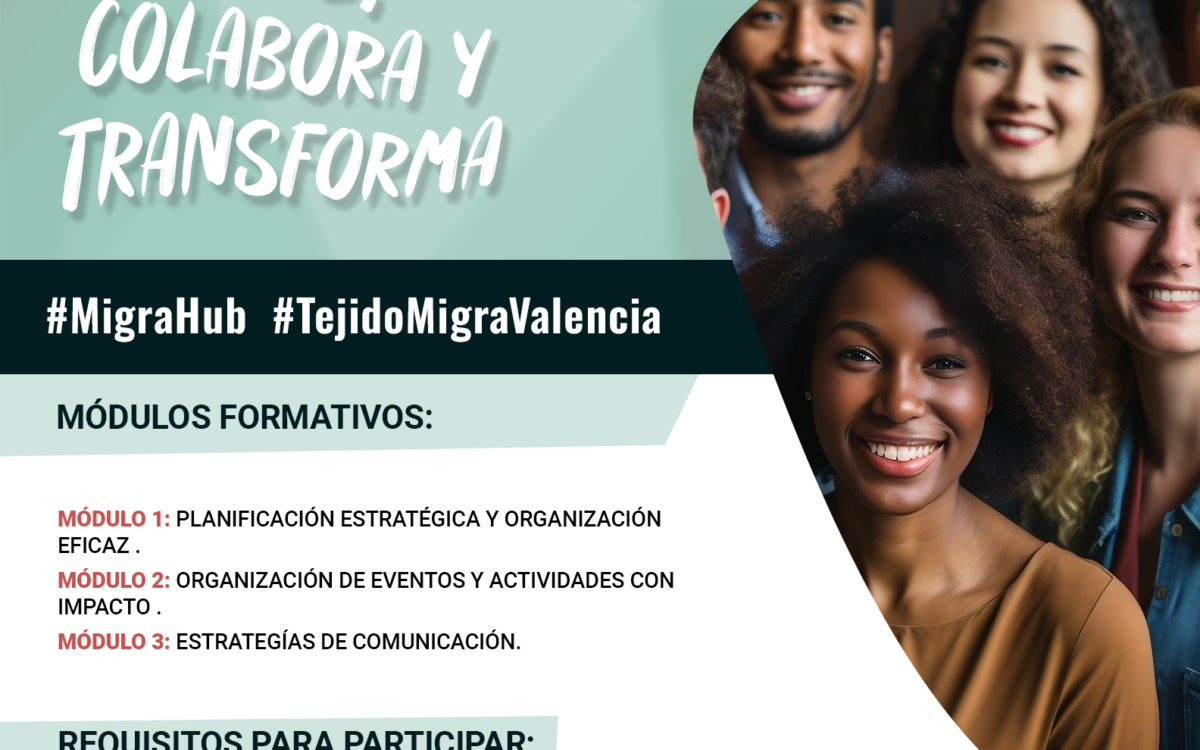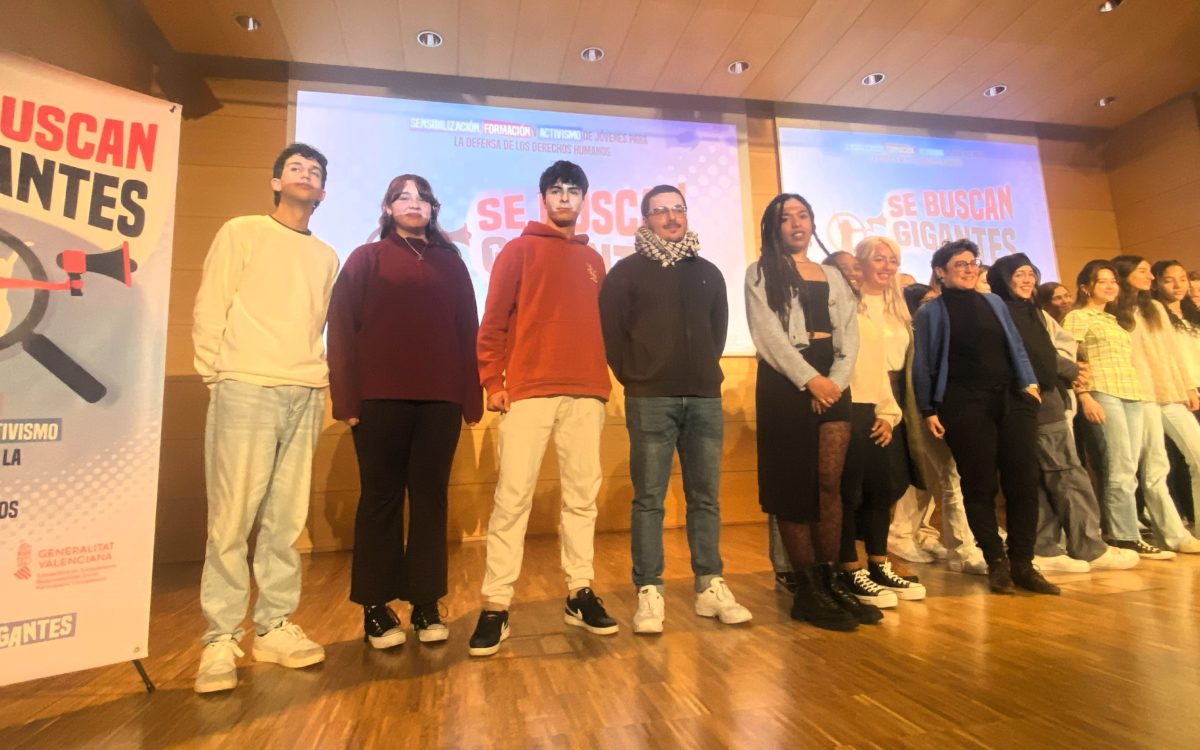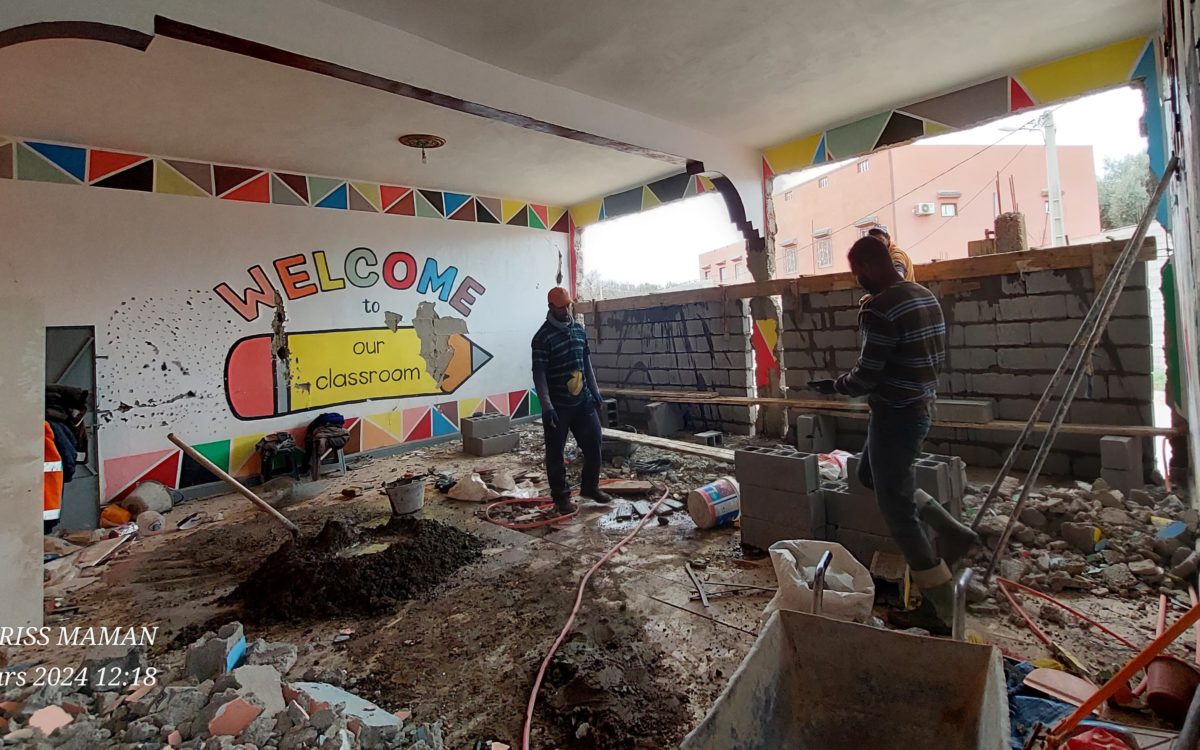- La valenciana Isabel Tomás Castelló ha emprendido su propio negocio de asesoría y consultoría en agrotransición gracias a la beca y la formación recibidas en el marco del proyecto europeo InnovAgroWoMed, impulsado por Jovesólides en España

Isabel Tomás Castelló (València, España) es Ingeniera Agrónoma por la Universidad Politécnica de València y Técnica en Producción Agroecológica. Ha trabajado llevando explotaciones agrarias de olivos y almendros en cultivo ecológico, cítricos y caquis en València. También tiene experiencia en gestiones administrativas en el sector público, en el ámbito de las subvenciones agrarias; en gestión y control de variedades protegidas de cítricos; y ha trabajado en Madrid en sanidad vegetal.
Agrotransición es el negocio que ha emprendido tras su paso por el proyecto InnovAgroWoMed, una empresa de gestión y asesoramiento a explotaciones agrarias en modelos de producción alternativos a la agricultura convencional.
¿Cómo y cuándo surge tu idea de negocio innovador?
Me gusta la naturaleza y la educación, a lo largo de los años he trabajo en estos dos sectores, aunque siempre por separado. Así que pensé ¿por qué no integrarlos?
Fui profesora particular durante muchos años mientras estudiaba agronomía. Curiosamente conocí a bastantes personas con trastornos diversos, sobre todo niños y adolescentes. Y me sorprendió su calidad humana, a pesar de los contratiempos. Posteriormente inicié mi trayectoria profesional en el sector agrario, tuve la oportunidad de trabajar en producción ecológica, pero principalmente en producción convencional. De esa experiencia llegué a mis propias conclusiones.
Pienso que la agricultura convencional es un modelo que tiene los días contados. Y creo que se ha perdido la cercanía entre personas y el cuidado por la tierra. Con el paso de los años te das cuenta de que las personas realmente lo que necesitan es a alguien que los acompañe, más que aprobar un examen o que sacar provecho de un cultivo. Y es por esto por lo que decidí emprender en este proyecto.
Agrotransición quiere ser algo más que una empresa de asesoramiento y gestión agraria, la parte de consultoría es el inicio. Tiene el propósito de crear también una comunidad integrativa en un entorno natural cercano a Valencia. Que sea un espacio de recogimiento e integración social donde poder hacer distintas actividades, a la vez que se da ejemplo de otros modelos de producción alternativos. Que sirva como punto de encuentro entre quienes nos alimentan y quienes son alimentados. Porque es necesario acercar realidades para promover cambios de mentalidad.
¿Qué valor aporta a la sociedad tu empresa ‘Agrotransición’?
Estuve muchos años estudiando nuevos modelos de producción agraria que fueran más respetuosos con el entorno, con la sociedad. Quiero ayudar, desde una perspectiva considerada, transparente y cuidadosa con la gente y la naturaleza.
Creo que es necesario plantearse nuevas formas de cultivo, de trabajar, de tratar la tierra en la que vivimos y a las personas con las que compartimos el mundo. Necesitamos sencillamente “otras formas”, con valores humanos.
Por ello creé Agrotransición. El nombre responde a esa idea de transformación que necesita el campo, el sector agrario, la vida, la sociedad.
¿Qué es lo que te ha impulsado finalmente a emprender y por qué no lo habías hecho antes?
Lo que me ha dado el impulso definitivo para emprender ha sido el programa InnovAgroWoMed y Jovesólides, sobre todo las mujeres a las que conocí durante el curso y la beca final que me han concedido. No lo había hecho antes por miedos, inseguridades y porque no me lo podía permitir económicamente. Haber estudiado el curso también me ha ayudado mucho a lanzarme porque he aprendido unas directrices para empezar.
Vídeo Isabel Tomás. Proyecto de asesoría y consultoría en agrotransición (InnovAgroWoMed).
¿Cómo te han ayudado el período formativo y la beca para desarrollar tu idea emprendedora y superar los problemas iniciales?
El periodo formativo ha sido de gran ayuda para refrescar conocimientos ya adquiridos en el pasado y otros nuevos, sobre todo prácticos y actualizados. Creo que hemos salido muy bien preparadas del curso.
La celebración del Agroforo Resilient fue como un chute de energía positiva y de autoestima. Conocí a gente que estaba interesada en mi proyecto y la verdad es que fue muy satisfactorio.
También tengo que dar un especial agradecimiento al jurado de la beca que valoró mi candidatura y me dio la oportunidad de hacer realidad un sueño que tenía, aunque va poco a poco, pero sin ese dinero no habría comenzado.
¿Has encontrado dificultades específicas en tu proceso por el hecho de ser mujer?
Durante el proceso formativo no, pero ahora que estoy ya en la realidad, buscando al cliente, su confianza, sí que en una ocasión puntual he sentido que no se me ha tomado en serio. No solo por el hecho de ser mujer sino más bien creo que ha sido una mezcla, entre ser mujer, ser joven y tener estudios.
Háblanos de lo que has logrado hasta ahora y de tus expectativas de futuro.
Me contactó una Mancomunidad de Municipios con la que he colaborado en una línea de acción para emprendedores en el sector agroalimentario en una zona rural. Gracias a esto, he tenido varios contactos a los cuales ya he asesorado y en este momento estoy en contacto con uno de ellos para llevarle el cuaderno de campo digital y ayudarle a preparar subvenciones agrarias. Hay otra persona interesada en que le ayude con su solicitud de la PAC y con el cuaderno de campo, una mujer empresaria con campos.
Por otra parte, en el Agroforo Resilient hice dos contactos. Una empresa que posee una marca de calidad diferenciada para productos agroalimentarios y es miembro de GlobalGap, me propuso colaborar con ellos como técnico especialista a la hora de preparar a las explotaciones agrarias para las auditorías. Por el momento no hemos iniciado nada pero es una oportunidad más que tengo en cuenta.
¿Qué ha supuesto para ti el proyecto InnovAgroWoMed?
Ha sido como un golpe de aire fresco y renovado. Yo entré en el programa buscando una oportunidad de cambio a nivel laboral, principalmente, y también con el objetivo de renovarme en el sector.
No solo me ha ayudado a llevar eso a cabo sino que ha supuesto para mí todo un refuerzo a nivel personal, a nivel profesional y económico. He conocido a gente maravillosa, con valores, que me ha enseñado que hay personas que todavía están dispuestas a ayudar y acompañar y con ganas de trabajar y vivir de otra manera.
Tras tu experiencia ¿qué recomendarías harías a otras emprendedoras?
Les diría que no se vengan abajo, que lo vivan con mucha ilusión y con optimismo, que valoren cada palabra que escuchen y cada persona que viene a enseñarles, que no tengan miedo de preguntar, que no se aburran de aprender, que se dejen llevar en el transcurso de la experiencia a pesar de la incertidumbre y que no se rindan y lo disfruten.
¡Y que tomen muchas notas! Luego siempre se recurre a ellas 😀
En el marco del proyecto europeo #InnovAgroWoMed, Jovesólides ha trabajado durante tres años con entidades socias de Italia, Túnez y Palestina en el desarrollo de un diagnóstico de necesidades, diseño e implementación de un programa formativo en los cuatro países participantes. Posteriormente se han desarrollado diferentes servicios de acompañamiento, formación, coaching y becas económicas para impulsar el emprendimiento y facilitar la inserción laboral de las mujeres en el sector agroalimentario.
Gracias a esta experiencia, en España se ha formado a 35 mujeres en riesgo de exclusión social y hasta hoy, al menos el 54% de ellas, ya está trabajando.
 en
en  es
es